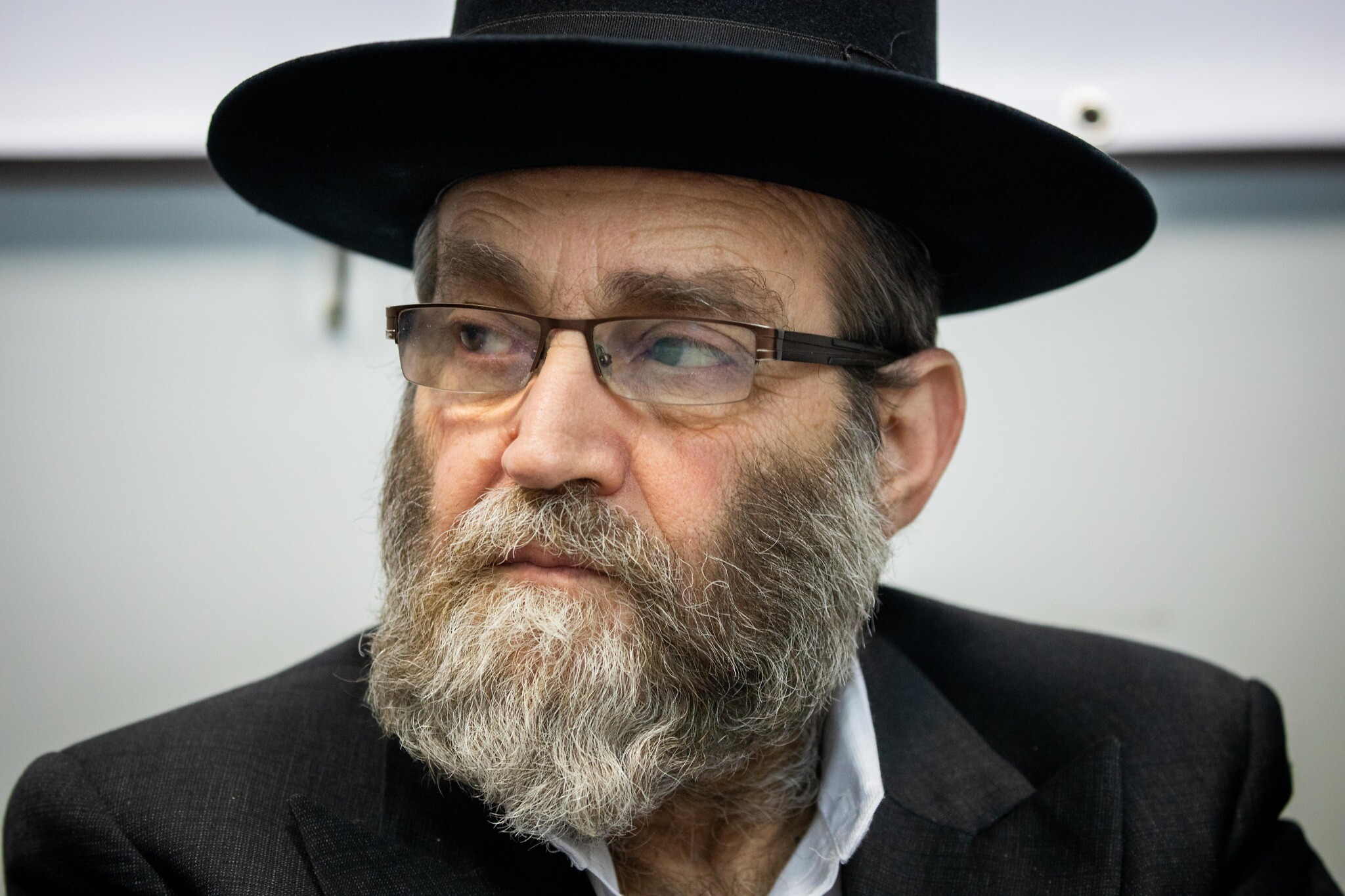

Moshe Gafni says he made issue ‘clear’ to Netanyahu during conversation; health minister warns schools breaching lockdown
may be fined, lose licenses.
Defying the law, a leading ultra-Orthodox legislator told Prime Minister Benjamin Netanyahu that the community would not agree to close down schools that opened illegally on Sunday, including in high-infection areas, endangering recent advances in fighting the coronavirus pandemic.
In a statement, United Torah Judaism’s Moshe Gafni said he had “made clear” to Netanyahu a demand by a leading rabbi that ultra-Orthodox children be allowed back at school — despite fears that the education system may be a major contributor to the spread of the virus.
Rav Chaim Kanievsky, the top rabbi in the non-Hasidic Lithuanian ultra-Orthodox community in Israel, on Saturday instructed schools to reopen in defiance of government decisions, leading hundreds of schools to illicitly open their doors Sunday. However, Rav Kanievsky, who himself is infected with the coronavirus, called for adherence to social distancing measures and a limited number of pupils per classroom.
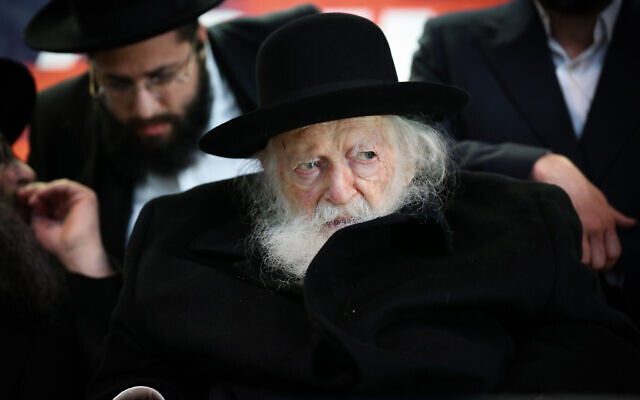
There was no immediate comment from Netanyahu, who on Saturday had pleaded with the ultra-Orthodox not to reopen schools.
“The Torah sanctifies life, and doing this [i.e.: reopening] endangers life,” he said.
Earlier, Health Ministry Yuli Edelstein warned of “heavy fines” for schools that open in violation of lockdown measures and potential revocation of their licenses.
Preschools, kindergartens and daycares were allowed to reopen Sunday, after a weeks-long closure, but all other educational institutions must remain shuttered.
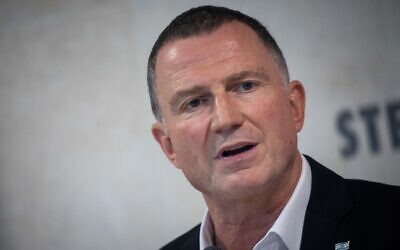

the Hadassah Ein Kerem hospital in Jerusalem, on July 15, 2020.
(Yonatan Sindel/Flash90)
Many of the ultra-Orthodox schools that reopened on Sunday were in virus hotspots, which currently include Bnei Brak south of Jabotinsky Street, Beitar Illit, Modiin Illit, Elad, the northern town of Rechasim, and the Jerusalem neighborhoods of Ramat Shlomo, Ramat Eshkol, Maalot Dafna, and Kiryat Mattersdorf.
“There is no authorization [to reopen]. No one gave authorization,” Edelstein said during a press conference at Ariel University in the West Bank. “Whoever does this is expected [to receive] heavy fines, maybe even the revocation of their license and the revocation of funding for the institution.”
He added: “We need to remember a simple rule. Whoever does something that is not all right endangers himself, but he does not need to be an example to others.”
Edelstein said he had reached out to Attorney General Avichai Mandelblit about possibly withholding funds from schools that violate the restrictions.
The health minister added that he was very aware that a single NIS 5,000 ($1,480) fine for a school that opens against the rules — the current rate — is inconsequential to large educational institutions, “and so I expect the police to continue issuing fines if the institutions do not close.”
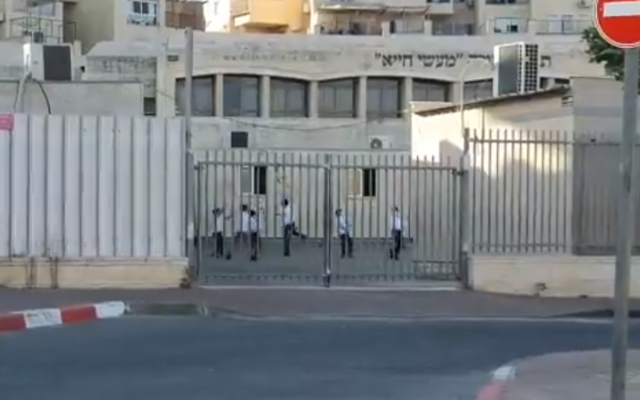

Netanyahu urged everyone to “follow the rules [and] ensure they are followed.” He said enforcement would be stepped up and “we’ll give out fines wherever it is needed.
“We are in the midst of a great effort to continue the great success of the lockdown. We want rules to be honored throughout the country,” the prime minister said. “The most important thing is for everyone to understand that we are acting for the benefit of the health of all Israelis, and we’ll achieve this only through increasing discipline.
Also Sunday, Defense Minister Benny Gantz met with mayors of several largely ultra-Orthodox towns, including Bnei Brak, Elad and Modiin Illit.


October 12, 2020. (Yaniv Nadav / Knesset Spokesperson’s Office)
Gantz said he expected the heads of so-called “red” towns “to do everything to ensure the public keeps to [health] regulations. There cannot be two nations within Israel. It is dangerous medically and socially.”
He also said the security establishment would boost its assistance to residents in cities that remain under lockdown.
Sunday saw 301 new cases diagnosed by 7 p.m., continuing the trend of a significant drop in virus cases in recent days. The total case count stood at 303,109, of which 32,805 were active cases.
The death toll stood at 2,209, an increase of 11 throughout the day.
Of the 1,199 hospitalized, 669 were in serious condition while 213 were in moderate condition.
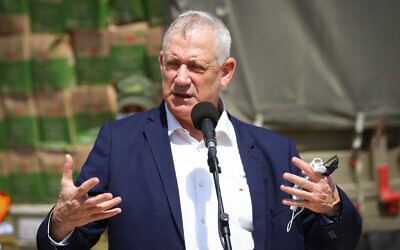

Command soldiers during a visit to the southern city of Ashdod,
September 14, 2020.
(Flash90)
Israel on Sunday began easing a month-long closure that has managed to curb runaway infection rates, but shuttered much of the economy and paralyzed many aspects of life for many people. Officials have expressed fears that pressure to swiftly reopen schools and businesses will lead to a repeat of the chaotic emergence from its first lockdown in May, widely blamed for paving the way for the spike in new COVID-19 cases in August and September.
The top official charged with leading Israel’s response to the coronavirus warned Saturday evening against becoming complacent and also urged ultra-Orthodox communities not to open schools. Speaking in a televised address, Ronni Gamzu issued a specific warning to the Haredi community.
“Opening the education system in violation of the regulations is dangerous and against the law,” he said.
However, that plea did not help. The institutions that opened in violation of the rules belong to mainstream Haredi sects, not only the extremist factions that normally flout the instructions and clash with authorities.
Kids and teenagers, boys and girls, Hasidic and Lithuanian all were seen going back to their yeshivas in Bnei Brak, Modiin Illit, Beitar Illit and high-infection areas in Jerusalem. Channel 12 estimated that some 40,000 boys went to school in breach of the rules.
Institutions belonging to the Sephardic ultra-Orthodox community remained closed, as did those belonging to some major Hasidic sects, such as Gur.
Police officers were seen outside some institutions that reopened, but in some cases did not appear to take any action.
The Israel Police said three principals of educational institutions in Modiin Illit and Beitar Illit that opened in violation of the rules were each issued a NIS 5,000 ($1,480) fine, and that two more principals were summoned to the police station to receive fines.
The statement said that cops had ordered the principals to close down their schools and send the students back home, adding that talks were also being held with the mayors and chief rabbis of those towns.
Police said officers had rescued a crew of journalists who were surrounded while filming the open schools, with dozens of young people cursing them and throwing rocks and eggs at their car.
A reporter for Channel 12 news published footage from the incident in Beitar Illit, accusing police of telling him his media coverage was a provocation and ordering him to leave.
Many ultra-Orthodox leaders and residents continue to believe their community is being unfairly targeted by Netanyahu’s government, even as some Haredi cities and towns are removed from the list of high-infection areas. Positive tests among the ultra-Orthodox have been substantially higher than among the general population.
(Times of Israel).





